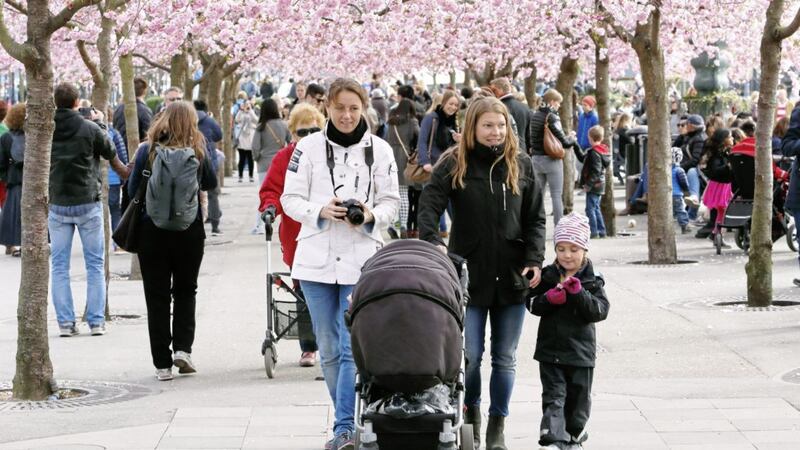ARE you a woman worried about your retirement? Well, today we can reveal that the reason women are struggling with their pensions is: men.
It’s no secret that women tend not to build up the same level of pension income as men.
Patricia Hollis, a peer in the House of Lords, has said that this is because our pensions system was designed by men for a male life pattern. “You couldn’t design, in my view, a worse fit for women in pensions if you tried.”
Women urgently need to consider the female life pattern, and realise the different approach they have to take to achieve financial independence, rather than partly relying on their partner’s pension, when they retire.
One reason for this ‘pensions gap’ is the time women take out of work, when they start a family. Less years of pension contributions means less pension.
Patricia Hollis pointed out that half of women end their pension contributions after childbirth, and if they do return to work, it’s often to part-time work earning less than £10,000. Latest research by Now Pensions has found that only 40 per cent of mums between 18 and 45 work full-time.
That means many become the ‘invisible women’ who do not make the threshold for auto-enrolment into a workplace pension. Hollis added: “It’s how we in society want them to work and live, and then we punish them for it.”
Another reason women find it difficult to return to work, as we have mentioned before, is that the average childcare place costs £166 a week. Now Pensions found 69 per cent of women name childcare costs as the reason they didn’t return to full-time work.
Well, it’s nearly Christmas and at this time of year, I like to introduce a bit of snow and a few reindeer - so let’s look at Sweden, and how they are helping women to keep working and keep saving.
The ever-enlightened Swedes have put a cap on childcare costs, to help women who want to get back to work. For their first child, parents pay 3 per cent of their income but no more than £115 per month. For three children or more, the total fee is 5 per cent, capped at £230. Another part of the solution is widely available access to pre-schools.
The Swedish government heavily funds pre-school places, going even further to free mums up to get back to the office – and found that it largely pays for itself. Working mums pay taxes, and pursuing a full-time career often results in a steeper salary growth, which results in more revenues for their progressive tax system.
Families with more to spend contribute more in value added tax, and of course enjoy a better lifestyle, making the attractions of returning to work, and to pension saving, even stronger.
It’s working, too. The researcher who was writing the report in Sweden wanted a stay-at-home mum to interview but couldn’t find one. Why do Swedish mums return to work? Because they can.
Meanwhile back here in Ballygobackwards there’s not much snow, definitely no reindeer, and the challenges for women remain.
Experts are pointing out to the UK government that, apart from the pensions gap for women, the taxman is losing out on a lifetime of income tax from women who never return to full-time employment. There is a strong lobby now for subsidisation of childcare here as a result.
What is clear, while all these things are going on, is that women should take financial advice on pension saving, to minimise the impact of the childcare years and give them a stronger leg to stand on, when they retire.
:: Michael Kennedy and Shaun Doherty are independent financial advisers and pensions specialists, and can be contacted on 028 71886005. Further information on Facebookat “Kennedy Independent Financial Advice Ltd” or at www.mkennedyfinancial.com








